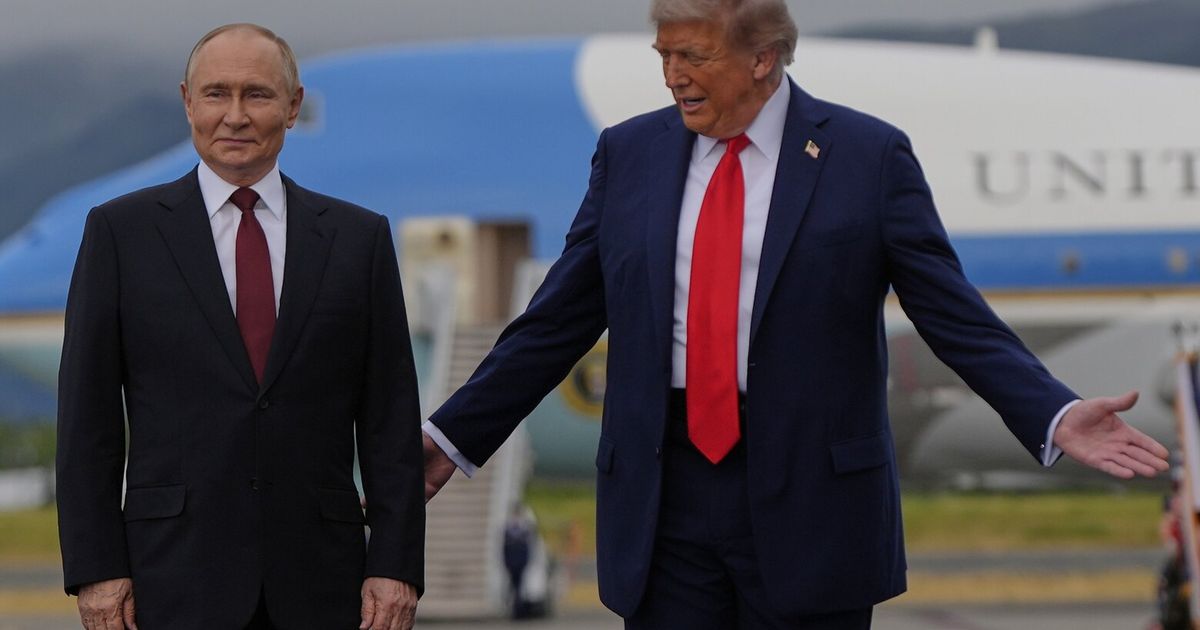EU Leaders Excluded from Putin Trump Summit in Anchorage

The much-anticipated summit between U.S. President Donald Trump and Russian President Vladimir Putin took place today in Anchorage, Alaska. While the meeting has drawn global attention for its potential impact on the war in Ukraine and wider international security, it is equally notable for those who were not invited: Ukrainian President Volodymyr Zelensky and all European Union leaders.
A Meeting of Two Powers, Without Ukraine or the EU
President Trump described the Anchorage summit as an opportunity to “feel things out” and understand “what Putin has in mind” regarding possible peace arrangements. The White House portrayed the encounter as exploratory rather than final.
Yet, the absence of Ukraine’s leadership and the European Union has raised questions about the legitimacy and inclusiveness of any negotiations. Observers argue that excluding Kyiv and Brussels sends a strong message—that only select global powers are being treated as decision-makers in resolving the conflict.
The EU’s Ongoing Struggle for Recognition
Political analysts note that this is not the first time the European Union has been sidelined from major international diplomacy. Despite its vast economic clout, extensive aid contributions to Ukraine, and a growing role in defense coordination, the EU continues to be perceived by many global actors as something less than a true geopolitical power.
Some commentators describe the EU as an “unidentified international object” in world politics—too significant to ignore, yet not regarded as a sovereign actor in the way individual states are. This perception has left the bloc struggling to secure a direct seat at the negotiating table, even in matters that affect its own security and neighborhood.
Europe Pushes Back
In response to being left out of the Anchorage meeting, the European Union, backed unanimously by all 27 member states, issued a joint declaration ahead of the summit. The statement reaffirmed the principles of territorial integrity, sovereignty, and the inviolability of borders—core pillars of international law.
Crucially, the EU emphasized that any credible peace process must include Ukraine’s President Volodymyr Zelensky, warning that bypassing Kyiv would risk creating an unsustainable and unjust settlement.
Washington’s Message: Europe Must Pay
Shortly after the EU statement, U.S. Vice President J.D. Vance appeared on Fox News with a blunt message:
“We’re done with the funding of the Ukraine war business. If the Europeans want to step up and actually buy the weapons, they can. But we’re not going to fund it ourselves anymore.”
The remarks underscored the shifting U.S. stance, signaling that Washington now expects Europe to shoulder a much greater share of the financial and military burden. For many European leaders, the comments were seen as dismissive of the EU’s role and a reminder that their influence remains constrained despite heavy contributions to Ukraine’s defense and humanitarian relief.
Analysts Warn of a Defining Moment
Experts argue that this moment could define the EU’s future as a geopolitical player. With the U.S. retreating from its traditional leadership role in Europe’s security and Russia seeking to dictate terms, Brussels faces mounting pressure to transform its economic power into political and military influence.
Several analysts point out that the EU already has the tools—financial strength, defense industry capacity, and diplomatic reach—but must act decisively and independently to be taken seriously on the global stage. The Anchorage summit, they argue, should serve as a wake-up call for Europe to step out of Washington’s shadow and assert its own voice.
What Comes Next
While the outcome of the Trump–Putin talks remains uncertain, the exclusion of Ukraine and the EU has deepened fears that any agreements made could undermine both European unity and Ukraine’s sovereignty.
For now, Brussels insists it will continue to back Kyiv militarily, financially, and politically. But unless the EU can force its way into the highest levels of negotiations, its role risks being reduced to that of a financial sponsor rather than a true geopolitical actor.


0 Comments